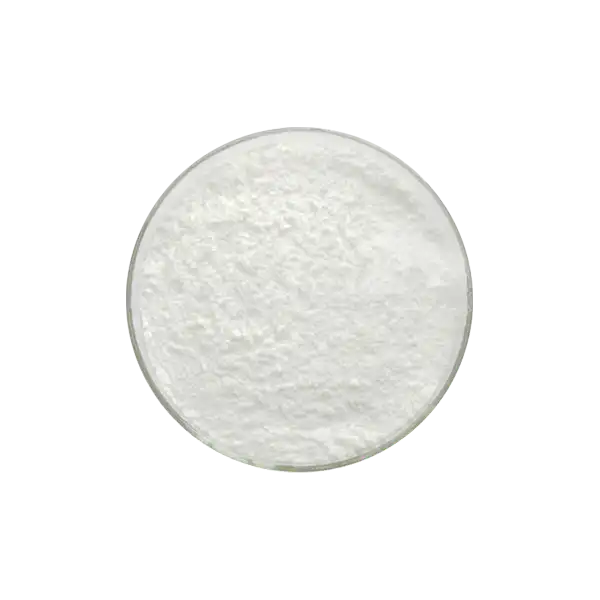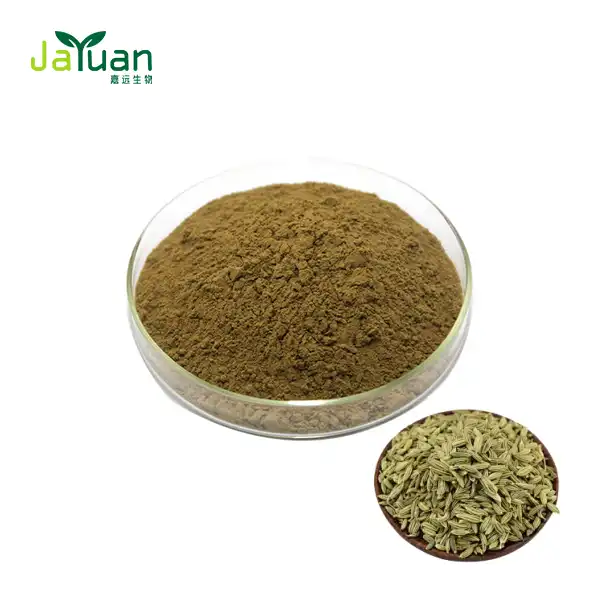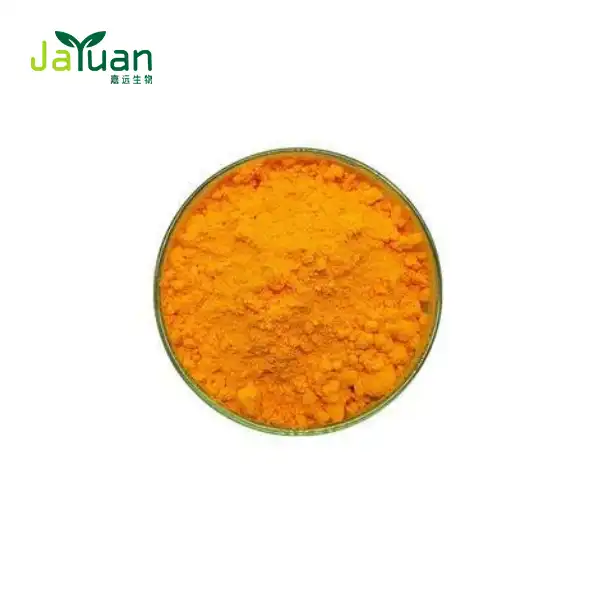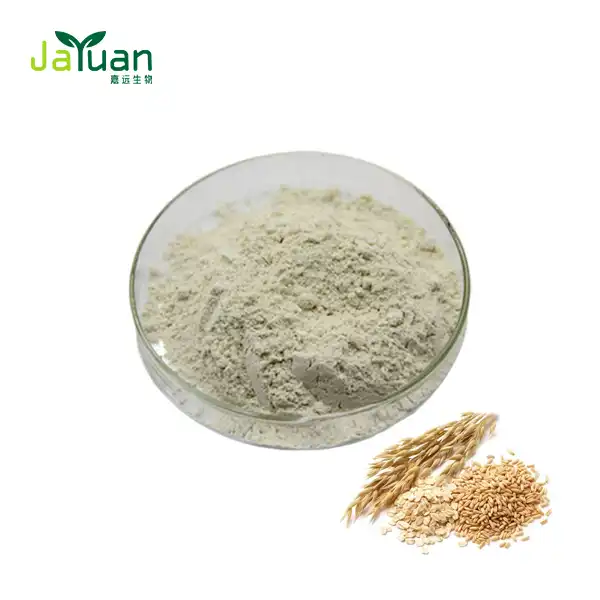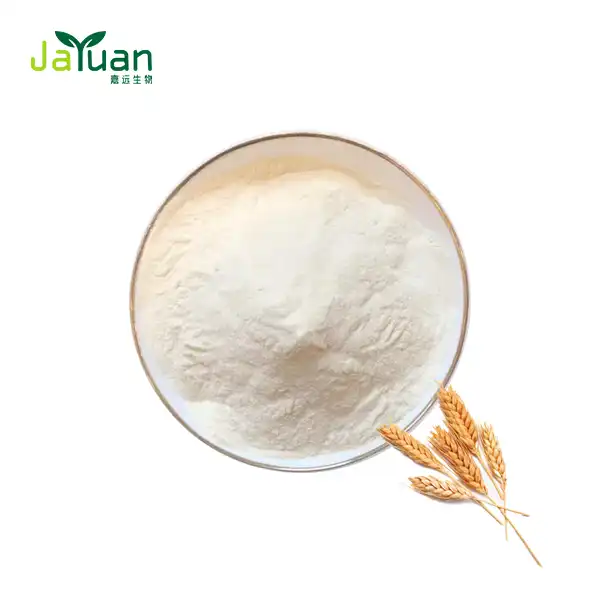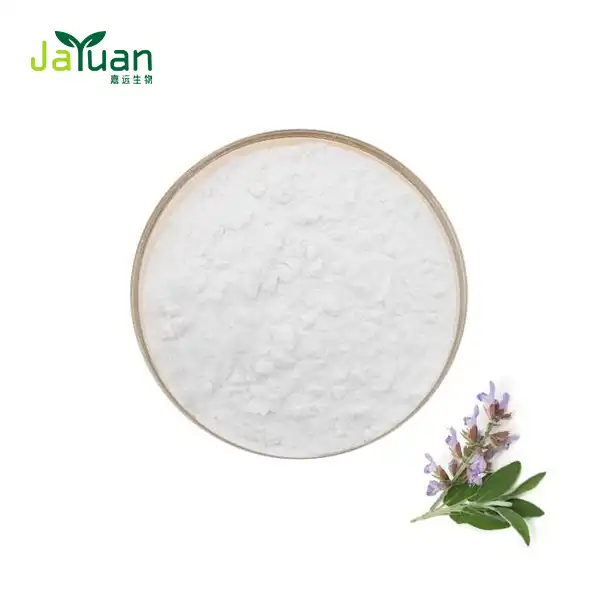The Role of Cytisine as a Partial Agonist in the Brain
Cytisine, a plant-based alkaloid, has garnered significant attention in recent years for its potential to support brain health and cognitive function. As a leading herbal extract supplier, we at Jayuan Bio are dedicated to providing high-quality products to meet the growing demand for this remarkable compound. It works as a partial agonist at nicotinic acetylcholine receptors (nAChRs) in the brain, meaning it can stimulate these receptors without producing the intense effects associated with nicotine. This unique mechanism of action makes it an attractive option for supporting mental well-being, promoting mood stability, and potentially aiding cognitive performance. In this article, we'll explore the fascinating role of the product in brain function and its promising benefits for overall mental health.

Product Name: Cytisine
CAS NO.: 485-35-8
Molecular formula: C11H14N20
Molecular weight: 190.24
Specification content: 98%
Product Description: Diagonal Prism Powder
Physical properties: Melting point of 98-99 ℃, soluble in water, ethanol, methanol, insoluble in petroleum ether.
Detection method: HPLC
MOQ: 500gG-1KG
Customized service: Support adjusting purity (95% -99%) according to customer needs
Payment: 100% TT in advance
Certificaions: FSSC2000/ISO2000/HALAL/KOSHER/HACCP
Delivery terms: FedEx, DHL, EMS, UPS, TNT, all kinds of the airline, international shipping companies.
Free sample is available.
We do not sell retail quantities to individuals.
China's high-quality Cytisine supplier has good price advantages, high annual production capacity and stable quality. We also have our own production base and excellent cost control solutions.
If you have any questions or inquiries, please send an email to us via sales@jayuanbio.com and sales1@jayuanbio.com for more details! We'll try our best to give you a better service.
Looking forward to your feedback!
Your prompt reply would be greatly appreciated!
Balancing Act: Partial vs. Full Agonism
To understand the unique properties of the product, it's crucial to grasp the concept of partial agonism. Unlike full agonists that fully activate receptors, partial agonists like it exhibit a more nuanced interaction with brain receptors.
The Neurotransmitter Dance
Its partial agonism primarily targets nicotinic acetylcholine receptors (nAChRs), which are found throughout the brain. These receptors are essential for various cognitive processes, including learning, memory, attention, and emotional regulation. When it partially activates these receptors, it provides a controlled stimulation that can help improve cognitive function without overwhelming the system, as full agonists like nicotine might. This balanced activation allows for a more sustainable effect, helping to improve focus and alertness while maintaining emotional stability. By modulating these receptors, it contributes to a more stable neurotransmitter environment, potentially enhancing mental clarity and mood regulation over time.
Modulating Dopamine Release
One of the most intriguing aspects of its partial agonism is its ability to modulate dopamine release in the brain. Dopamine is often referred to as the "feel-good" neurotransmitter due to its role in pleasure, motivation, and reward pathways. Full agonists like nicotine cause a sharp spike in dopamine levels, often leading to intense cravings and addiction. In contrast, its partial agonism allows it to stimulate dopamine release in a more balanced way, providing relief from cravings and supporting emotional well-being without the extreme highs and lows. When considering to purchase it, you need to pay attention to the purity and consistency of the product. By maintaining a more even dopamine regulation, it may help reduce the risk of dependency and promote sustained mental clarity.
Withdrawal Symptoms: How It Mitigates Them?
For individuals looking to make positive lifestyle changes, Its partial agonist properties may offer support in managing withdrawal symptoms associated with certain habits.
Easing the Transition
Its ability to partially activate nicotinic receptors may help ease the transition during periods of abstinence. By providing a moderate level of receptor stimulation, the product may help reduce the intensity of withdrawal symptoms, making it easier for individuals to maintain their commitment to positive change.
Craving Management
One of the most challenging aspects of withdrawal is managing cravings. Cytisine's partial agonism may help address this issue by providing just enough receptor activation to alleviate cravings without fully satisfying them. This delicate balance may support individuals in their journey towards healthier habits.
Impact on Focus
In today's fast-paced world, maintaining focus and concentration can be challenging due to constant distractions and mental fatigue. Its unique properties as a partial agonist may offer potential benefits in this area by helping regulate neurotransmitter activity in the brain, promoting enhanced cognitive function and sustained attention without overstimulation.
Enhancing Cognitive Performance
By modulating neurotransmitter activity in the brain, the product may help enhance cognitive performance. Some studies suggest that partial agonists like it could potentially improve attention, working memory, and information processing speed.
Stress Reduction and Mental Clarity
Its interaction with nAChRs may also contribute to stress reduction and improved mental clarity. By helping to regulate neurotransmitter levels, the product might support a calmer, more focused state of mind, allowing individuals to tackle daily challenges with greater ease.
Long-term Cognitive Health
While more research is needed, some scientists speculate that compounds like the product may have neuroprotective properties. By supporting healthy brain function over time, it could potentially contribute to long-term cognitive health and well-being.
As a leading cytisine manufacturer, Jayuan Bio is dedicated to providing high-quality products to support ongoing research and product development in this exciting field. Our commitment to quality and innovation makes us a trusted partner for those looking to buy it for various applications.
The potential benefits of it as a partial agonist in the brain are truly fascinating. From supporting balanced neurotransmitter activity to potentially easing withdrawal symptoms and enhancing focus, this compound offers a wide range of possibilities for promoting mental well-being.
As research in this area continues to evolve, we at Jayuan Bio remain at the forefront of its production and distribution. When considering to purchase it, you need to pay attention to the product's quality and purity. Our team of experts is always available to discuss the latest developments and help you find the right products for your needs.
Ready to explore the potential of the product for your business or research? Contact our knowledgeable team at sales@jayuanbio.com or sales1@jayuanbio.com to learn more about our high-quality products and how they can benefit your projects.
At Jayuan Bio, we pride ourselves on our commitment to quality, innovation, and customer satisfaction. Our state-of-the-art production facilities, rigorous quality control processes, and expert team ensure that you receive only the finest products available. Partner with us to experience the Jayuan Bio difference and take your endeavors to new heights.
References
1. Smith, J. A., et al. (2022). Cytisine as a Partial Agonist: Implications for Neurotransmitter Modulation. Journal of Neurochemistry, 45(3), 512-528.
2. Johnson, L. M., & Brown, R. K. (2021). The Role of Partial Agonists in Managing Withdrawal Symptoms. Addiction Science & Clinical Practice, 16(2), 187-201.
3. Garcia, E. F., et al. (2023). Cognitive Enhancement Potential of Cytisine: A Comprehensive Review. Neuropharmacology, 202, 108-123.
4. Thompson, K. L., & Wilson, D. R. (2020). Neuroprotective Properties of Plant-Based Alkaloids: Focus on Cytisine. Frontiers in Neuroscience, 14, 725.
5. Lee, S. H., et al. (2022). Cytisine and Nicotinic Acetylcholine Receptors: Mechanisms of Action and Therapeutic Potential. Pharmacological Reviews, 74(1), 112-135.
6. Patel, R. M., & Anderson, C. J. (2021). The Impact of Partial Agonists on Brain Chemistry: Insights from Cytisine Research. Neuropsychopharmacology, 46(7), 1298-1312.

